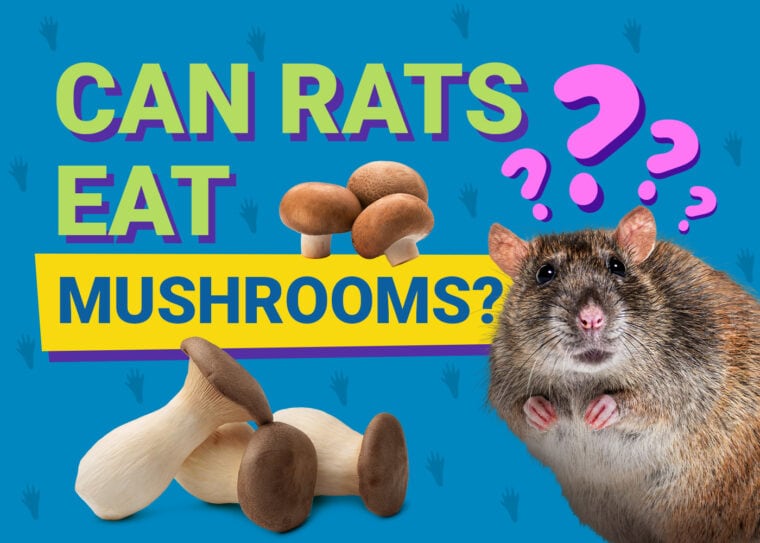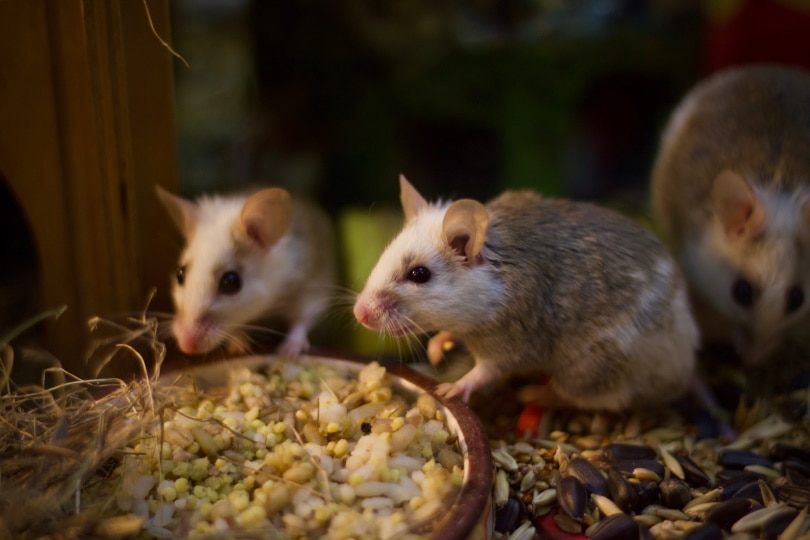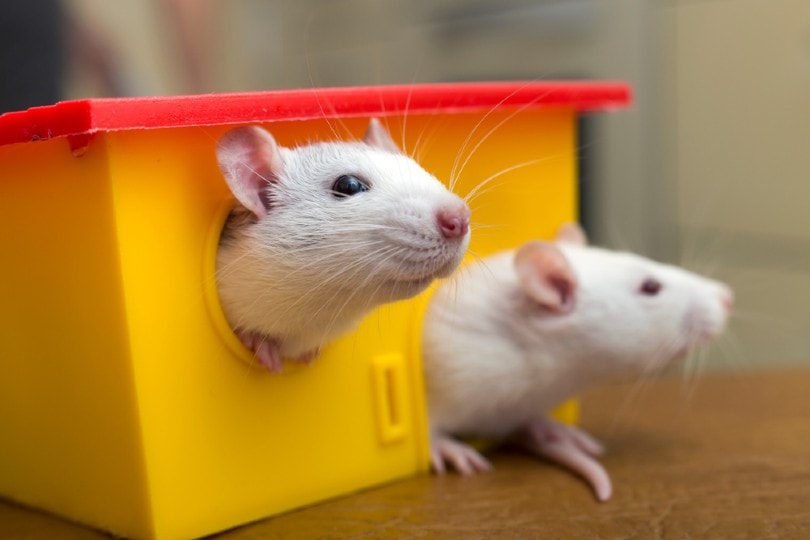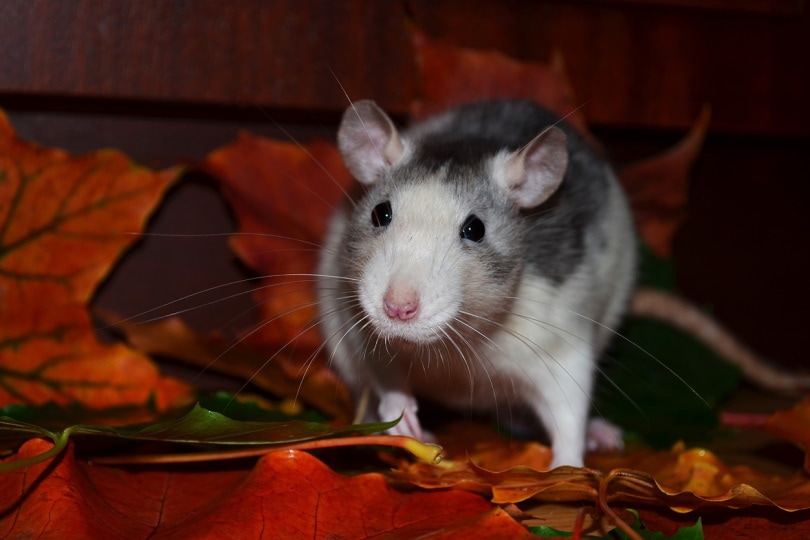
A healthy, balanced diet is vital to the happiness and longevity of your pet rat, and despite the rat’s reputation of eating almost everything and anything, rats have specific dietary requirements, just like any other pet. On average, pet rats can live for 2–3 years when housed properly and fed a nutritious diet, far longer than the 1-year average in the wild. They can thrive on a diet complete with various healthy veggies, but what about mushrooms? Are mushrooms safe for your pet rat?
Since there are so many different varieties of mushrooms, the answer is, unfortunately, not a definitive yes or no. Mushrooms that are safe for humans are generally safe for rats too. The commonly found white mushrooms are safe for rats as occasional treats and may even offer health benefits, but some mushroom varieties are poisonous for rats. In this article, we look at what mushrooms are safe for rats, which varieties are not, and whether giving mushrooms to your rat is a good idea.
All About Mushrooms
What you see on the surface of the ground — the mushroom — is actually a small part of a massive network of fungi, of which the mushroom is only the fruiting body. You can compare a mushroom to the fruit of a plant, but instead of producing seeds, the mushroom produces millions of tiny spores that form in the gills or pores underneath the mushroom’s cap. The fungus is always there under the soil, and the fruit is only a tiny, temporary part of a much larger fungal network.
There are over 50,000 species of mushrooms, including molds and yeasts. Only around 600 are edible, some are used for their medicinal properties, and around 1–2% are poisonous. The most common species used for eating are the portobello, button or white mushroom, shiitake, porcini, and oyster.

Potential Health Benefits of Mushrooms for Rats
Any of the common mushroom varieties found in stores are generally safe for your rat to eat in moderation. Wild mushrooms can be exceedingly difficult to identify, so it’s best not to take the chance for you or your rat! White or “button” mushrooms are the most common variety and the most widely used for culinary purposes. These little mushrooms were once considered to be of little nutritional value, but in recent years, they have been shown to have many potential health benefits.
They are low in calories, saturated fat, and cholesterol and a great source of dietary fiber to aid in your rat’s gut health and digestion. They are also a great source of protein, which is critical to the muscle development and maintenance of rats, which need around 16% protein overall in their daily diet. White mushrooms are also a good source of vitamin C, which is essential to immune health; vitamin D for good bone, teeth, and muscle health; and essential minerals like iron, magnesium, phosphorus, and potassium.
There are also medicinal varieties of mushrooms that can potentially have incredible health benefits for rats, including treating certain types of cancer. Some of these include Turkey tail (Trametes versicolor), Bay bolete (Imleria badia), and Cordyceps (Cordyceps militaris).
Are There Dangers in Feeding Mushrooms to Rats?
Since there are so many different types of mushrooms available, some of which are toxic to both animals and humans, there are certainly risks with giving mushrooms to rats. That said, sticking to commonly found store-bought mushrooms, like buttons or oysters, should pose no problem in moderation; just avoid giving them any wild mushrooms unless you are 100% sure they are safe.
Moderation is key no matter the mushrooms that you decide to give your rat. Mushrooms are not a source of complete nutrition for rats, so they should not replace any part of their normal diet but instead, be offered as occasional treats only. Also, make sure to wash the mushrooms thoroughly in case of any pesticides or even lightly cook them. There is always a chance that your rat may not enjoy mushrooms at all, so you may need to chop them finely and try to disguise them with other food for your rat to gain the health benefits. But if your rat still doesn’t want to eat mushrooms, it’s okay, and they shouldn’t be forced to eat them if they don’t want to.

Can Rats Eat Raw Mushrooms?
As long as they are properly washed, raw mushrooms are perfectly fine for rats — in moderation. Any type of commercial mushrooms that are safe for humans will be safe for your rat, although they may have a preference for cooked or raw mushrooms, so you’ll need to try both and see what they prefer. Begin with a small amount to see how they react, and you can increase to larger portions later.
Conclusion
If you stick with commonly found, store-bought mushrooms, they are certainly a safe treat for rats. Avoid giving your rat wild mushrooms, as they are notoriously difficult to identify, and we feel that it’s better to be safe than sorry. Mushrooms can have amazing health benefits for your rat, including potential anti-cancer properties, so it’s a great idea to include them as a treat in your rat’s regular diet.
You might also want to know:









